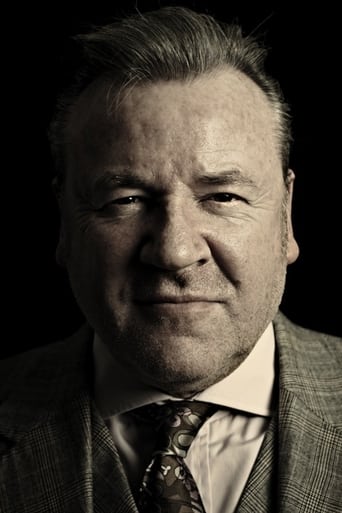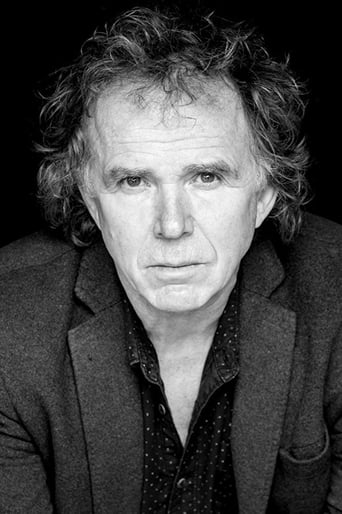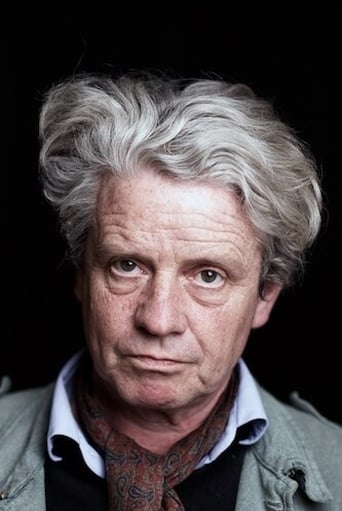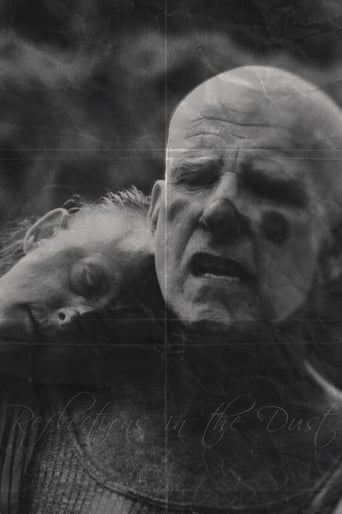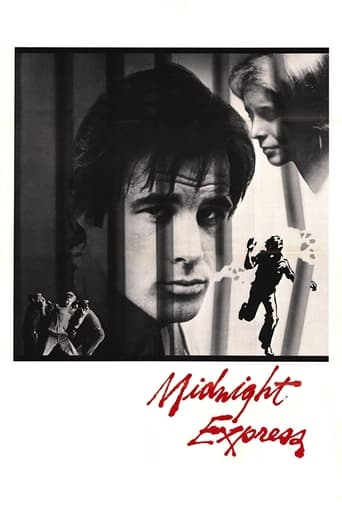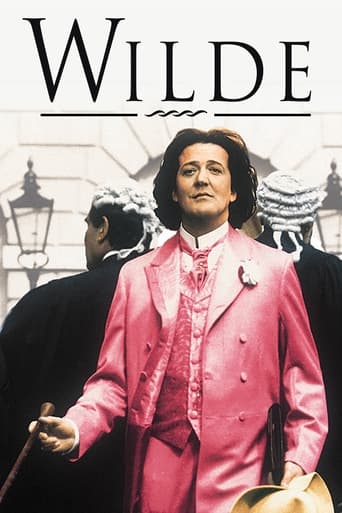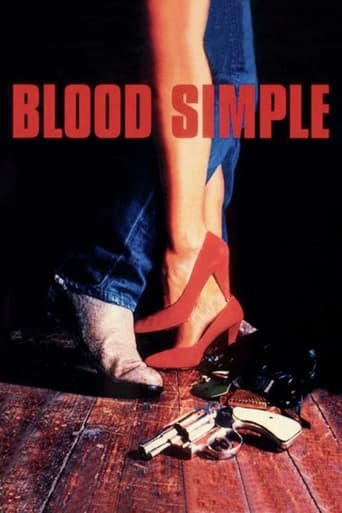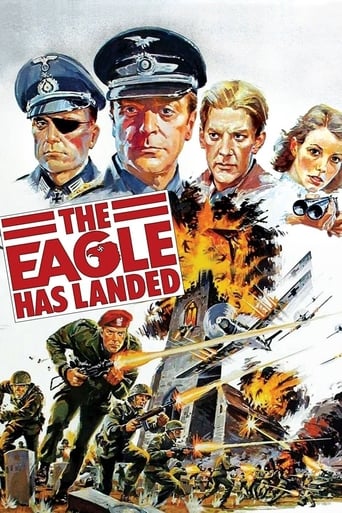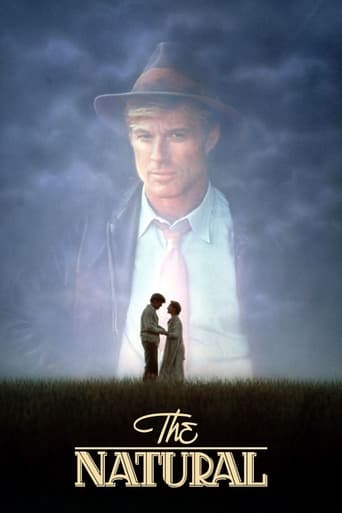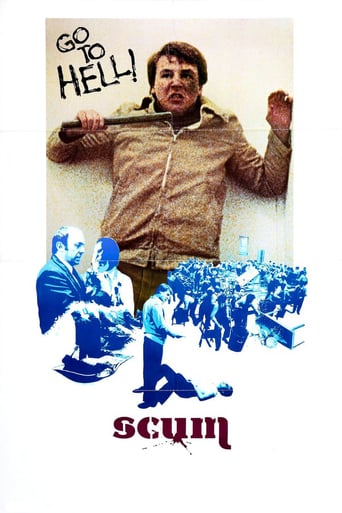

Scum (1980)
Powerful, uncompromising drama about two boys' struggle for survival in the nightmare world of Britain's notorious Borstal Reformatory.
Watch Trailer
Cast


Similar titles
Reviews
Director Alan Clarke originally made this as a television movie commissioned by the BBC. But they took exception to the incredible intensity of the subject matter, especially the way that the camera never flinches or cuts away from such horrors as suicide, rape, and racism. Clarke refashioned the story (written by Roy Minton) as a theatrical feature two years later, and made it angrier than ever, a scathing indictment of the treatment of juvenile offenders in this setting.And that setting is a "borstal", or British reform school. Minton relates what happens from day to day as the staff go about their business of dominating their charges without ever bothering to really take an interest in them or understand them. One of the newest arrivals is a youth named Carlin (Ray Winstone, just 22 at the time), and Carlin is threatened by the big fish of the joint, or "Daddy", named Banks (John Blundell).Our young protagonists may not be little angels, but they generate sufficient sympathy as we see what they are forced to experience. This particular borstal is quite the oppressive environment, and the staff, by and large, are very cold individuals. They really don't like their charges to show too much spirit, so one of the biggest thorns in their sides is self-styled individual Archer (Mick Ford, delivering a commanding performance). Among other things, he's an atheist and a vegetarian, and takes the latter seriously enough that he walks around barefoot, rather than wearing any sort of leather on his feet. Archer is this viewers' favorite character.Winstone does a creditable job in the lead, all the way through his characters' arc. Julian Firth (as the very unfortunate Davis), Phil Daniels, John Judd, Philip Jackson, Peter Howell, and P.H. Moriarty round out this exemplary cast."Scum" isn't a particularly revelatory film, but it is quite sobering and offers some provocative entertainment. It's not hard to see why it would have a cult following.Seven out of 10.
Unbelievable! Scum is one of those films that will rarely be watched but should be watched by all. It has that nature of being provocative, whilst being entertaining and informative. Scum tells the tale of so many institutionalized boys during the 60' and 70's who were so unfairly punished and treated by the authority figures that it makes the viewer so enraged that you just hope for a just ending.One of the great 'never-heard-of-films'. Scum makes you think and believe that one of the most torturous punishments and corruption cannot be true. Whilst this may be a microcosm for society, it is undoubtedly a simile for prison and others of the likes. One great film indeed.
Well? With an attention-grabbing, little title like "Scum", how the hell could one possibly expect to be treated like anything but dirt when it comes to viewing this decidedly nasty (and apparently) realistic look at the reform school system (for young, male offenders) as it stood in Britain in the 1970s? Clearly filmed for its sheer shock-value and its focus on brutal violence, I find it really hard to believe that "Scum" was initially intended to be a 1977 Made-For-TV movie. But, due to its fairly graphic depictions of suicide, male-rape & racism, the prudish BBC flatly refused to allow its release for public broadcasting.And so, Scum was eventually re-shot by its director, Alan Clarke, and it then made its theatrical debut (much to the public's gasps & shock) in 1979.The positive outcome of bringing Scum's brutal story to the immediate attention of the general public was that serious and dramatic changes (for the better) quickly went into effect by making corrections to the dismal conditions that clearly existed at youth detention centers all across the UK.Scum's fist-in-your-face story tells the tale of Carlin, a new reform school inmate who's already earned a fierce reputation as being a very bad-assed bad-boy.The lousy attitude of the authorities in charge at this particular "Borstal" make no attempt to reform or improve matters for the inmates. Instead they actively encourage face-to-face power struggles between new recruits and the "old hands".And here's where Carlin gets repeatedly challenged by Pongo, the toughest, meanest gang leader of the whole miserable lot. What follows in the wake of Pongo's taunts and harassment I'll leave to your imagination.Yes. Scum is most certainly chock full of endless hate, racism & profanity. (And, yes, there's an inevitable "prison riot" thrown in for good measure) And, yes, Scum is most definitely flawed & clichéd like any other film you'd see about life behind bars.But, still, 35 years later (even for the ultimately jaded viewer) it still manages to pack a considerable-sized wallop even if one has "been there/seen that" a thousand times before.
With several mixed reviews, it was essential that an open mind was kept. Released over thirty years ago it was expectedly dated. However the raw and poignant messages of the harrowing and hard life in British Borstals for young males were very clear. It is likely that you have heard the expression 'Treat others how you wish to be treated'; this disturbing and violent film shows, that in the 1970's, youth offenders were pushed to behave like scum as they were constantly treated like scum.Directed by Alan Clarke, Co- produced by Clive Parsons and written by Roy Minton in 1977, 'Scum' was originally deemed "too controversial" to be released and was therefore banned by the BBC. It wasn't until Borstals were abolished in 1982 that it was aired on Channel 4 (1983). The film clearly aimed to portray the brutality of life inside a British Borstal. Immediately from the onset; violence and corruption is shown as the warden's target the three new inmates; Carlin, (Ray Winstone), a re- offender with a bad reputation, Davis, (Julian Firth), a timid and scared first offender and Angel; a young black male. Carlin finds himself fighting with 'trainees' and 'screws' to gain ultimate hierarchy power to become 'the daddy'. Becoming the 'top dog' allowed Carlin to take advantage of the black market as he takes a large cut of any incoming money from the other trainees. The wardens bizarrely respect Carlins' leadership qualities as they expect him to keep the other trainees in order; in return he is given privileges such as a single- cell bed and the wardens even overlook his criminal behaviours.Borstals were introduced to Britain in 1902 to prevent young offenders from being influenced by adult offenders; aiming to reduce re-offending. They also aimed to reform young delinquents; focusing on routine, discipline and authority. One character in the film, who is determined 'not to be taken' by the system, is Ben Archer. This character is used to implicitly express the clear weaknesses of Borstals. Archer (Mick Ford) is a middle- class misfit who should have been sent to prison, due to his older age of 24; however he was sent to the Borstal and wanted to complete his sentence quietly yet causing as much trouble for the wardens as possible- being a vegetarian and atheist to infuriate the sternly religious Governor. Archer is extremely intelligent and it wasn't uncommon for some of the 'cons' to be better educated than the 'pigs'. There is a significant scene in which Archer has a conversation with warden Mr Duke. He states 'How can anyone build a character on a regime based on deprivation.. If it's not a con at me it's a screw.. More criminal acts are imposed on the prisoner's than criminals on society..' This was the sad reality. The aims of Borstals completely failed as violence lead to further violence. The film shows no evidence of rehabilitation or reform for these young offenders. Group meetings were held by the (female) Matron as she asks the young males to talk about any problems they might have. But no one wants to be the grass, right? She appears unsympathetic, showing no care or emotion, leading the trainees to feel further frustrated and psychologically strained. This is portrayed when an inmate becomes aware of his wife's death. She doesn't sympathise or offer any support or emotional help; this lead to his disturbing suicide attempt. The film also highlighted that each of the individuals' needs should have been separately cared for, as each individual is different. During the group session, the case of a fourteen-year-old boy is briefly shown. He is being held at Her Majesty's Pleasure for murder. He is socially isolated as he receives no family visitors and is always shown sat on his own. For such a young boy who committed such a serious crime it is most certain he needs to be psychologically treated- not physically punished. Inmates are stripped of their identity; "Matron? Can you not call us by our Christian Names?", and are labelled with a four digit number "You can't remember? That's all you are, a number!" This would have consequently affected their self-identity. Throughout, there is very strong language. Racial attacks; physical and verbal are explicitly shown; wardens isolate the young black males to single cells and racial fights during sports classes are shown- racism seemed to be the norm. Although racism in our current multi- cultural society has reduced through awareness and campaigns, it has by no means been erased. However, violent acts (such as racial or sexual attacks) between offenders; and between prison guards and offenders can be strictly controlled via CCTV. There is a horrifying and shocking scene in which Davis is gang raped by three older inmates whilst being watched by a corrupt, sadistic and callous 'pig'. Such changes allow protection or punishment for the offenders and guards in present prisons/ youth custodies.After being gang raped, Davis expressed he felt "lonely, scared and depressed" to a warden. He was ignored which lead to his poignant suicide. After a rebellious riot lead by Carlin the film ends with the 'screws' and 'cons' giving a minutes silence. Although some of the scenes are raw and cold- hearted, it does what it set out to; educate people of what life was like in Borstals; for both offenders and wardens. This film has been deemed to be significant contribution to abolishing corporal punishment and Borstals in 1982. They were since replaced with 'Youth Custody Centres' which have the necessary facilities and tools in place to successfully reform and rehabilitate youth offenders to their individual needs. Intensive community orders, Youth offending teams, restorative justice programmes and youth referral orders are other options available to suit individual cases and have been shown to have great success.


